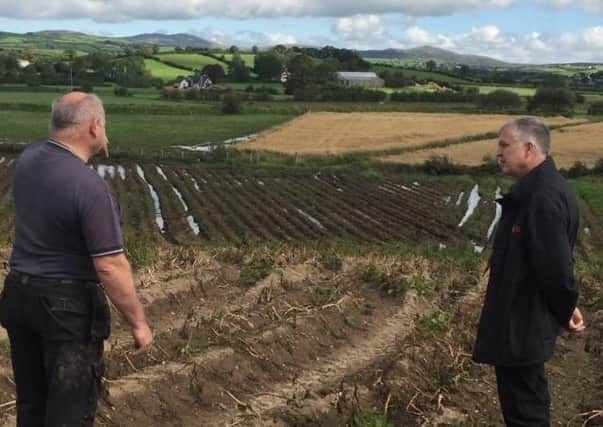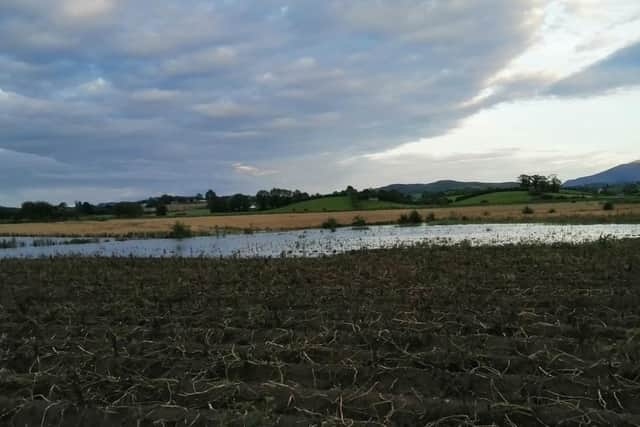NI potato sector is at risk from rivers


UFU deputy president William Irvine said: “A large amount of rain has fallen across the country in recent days and while we are unable to control the weather, the lack of river management has been the catalyst causing field flooding and widespread damage of crops in the process.
“This could have been easily avoided if the maintenance of rivers had been more effective and the correct river infrastructure had been put in place by local river agencies.
Advertisement
Advertisement
“It’s a high investment for potato growers to grow quality potatoes for both the seed and processing markets only for them to be submerged in the field.”


The UFU deputy president continued: “With the average cost of production in the region of £2,500 per acre, the financial implications have the potential to be devastating for a family-run farm business.
“It’s even more devastating when the flooding could have been prevented and comes down to poor river maintenance which is not our farmers’ responsibility, and yet it creates another challenge for them to overcome.
“Years of ineffective river maintenance results are now having costly implications for our growers.”
Advertisement
Advertisement
Drumadonnell River in the townland of Drumadonnell, Ballyward Co Down, is one of the rivers that burst its banks and, set against the backdrop of one of Northern Ireland’s iconic landscapes the Mourne Mountains, potato crops are submerged under water.
Mr Irvine added: “This year has been an extremely difficult one for everyone, including our farmers.
“They have overcome numerous obstacles and adapted their farm businesses to Covid-19 measures ensuring high-quality food was being produced and moved off-farm reaching shops across Northern Ireland since the pandemic began.
“The loss of crops because of bad river management is the last thing they needed, and it should have never happened.
Advertisement
Advertisement
“The UFU are now in the process of investigating the vacuum and impact of bad management by river agencies in the Moneyslane/Ballyward catchment areas on the outskirts of Castlewellan.”
Wilson’s Country managing director Lewis Cunningham has confirmed to Farming Life that the 2020 maincrop potato harvest is now underway
He said: “But this is only in the drier areas. The crops being lifted now were planted out during the spring drought. As a result, yields are quite disappointing, coming in at 14t to 15t per acre.
“Crops planted put on wetter land will be harvested over the coming weeks. But this is very much weather dependent.”
Advertisement
Advertisement
Mr Cunningham concluded: “The recent rains have made ground conditions very problematic in many areas. We need a week or two of decent weather to allow growers complete the harvest in a normal fashion.”